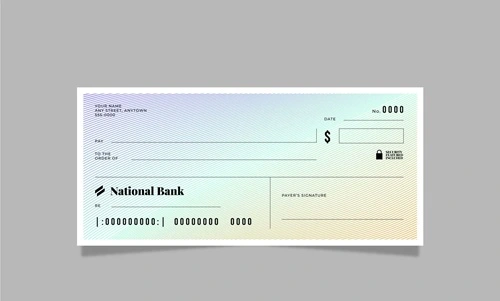A bank cheque is a paper slip that allows people to transfer money from one bank account to another without using cash. Bank cheques have been around for many years and are still an important part of banking today. They are used by people, businesses, and even the government to make payments. But like everything, bank cheques have both good and not-so-good sides. In this article, we will look at the advantages and disadvantages of using bank cheques.

Advantages of Bank Cheques
Bank cheques come with several benefits that make them popular even in today’s digital world. Here are some of the advantages:
- Safe to Use: One of the main reasons people use cheques is because they are safer than carrying cash. If a cheque is lost, it can’t be used by someone else, as the bank will stop the payment.
- Record Keeping: Cheques help in keeping track of payments. You can look at your cheque book and bank statement to see who you paid and when.
- Convenient for Big Payments: When making large payments, it is easier to use a cheque rather than carrying large sums of money. For example, when buying a car, people usually prefer paying by cheque.
- Widely Accepted: Cheques are accepted by most businesses and banks. They are especially useful for making payments to companies or individuals who may not accept digital payments.
- No Internet Required: A bank cheque does not need an internet connection. This makes it useful in places where online banking is not available.
Bank cheques have been a trusted method for a long time, as even seen on popular sites like bankingstuffs.com, which provides detailed information about cheque use and other banking methods.
Disadvantages of Bank Cheques
While cheques are useful, they also come with some problems. Let’s look at the disadvantages of using bank cheques:
- Time Consuming: When you write a cheque, it can take a few days for the money to be transferred from your bank to the receiver’s account. This is slower than online transfers, which happen immediately.
- Cheque Bounce: If you don’t have enough money in your account, the cheque will “bounce,” meaning the bank won’t pay it. This can cause trouble for both you and the person you are paying.
- Not Always Accepted: While many businesses accept cheques, some places prefer digital payments or cash. This is especially true in small shops and markets.
- Paper Waste: Writing cheques means using paper, which is not environmentally friendly. Digital payments do not need paper and are better for the environment.
- Risk of Fraud: Although cheques are generally safe, they can still be forged. Someone could try to change the amount on a cheque or sign it without your permission.
Comparison Table: Advantages vs. Disadvantages
| Advantages | Disadvantages |
|---|---|
| Safe to use | Time consuming |
| Good for record keeping | Cheque can bounce |
| Convenient for big payments | Not always accepted |
| Widely accepted | Paper waste |
| No internet required | Risk of fraud |
Conclusion
Bank cheques have been an important tool in banking for many years. They offer safety and convenience, especially for larger payments. However, with the rise of online banking, some people find cheques slow and less efficient. It is important to understand both the advantages and disadvantages before deciding to use a bank cheque. Knowing when to use a cheque can save you time and help you avoid problems like cheque bounces. Always make sure your bank account has enough funds to cover the cheque and choose the method that works best for your needs.


